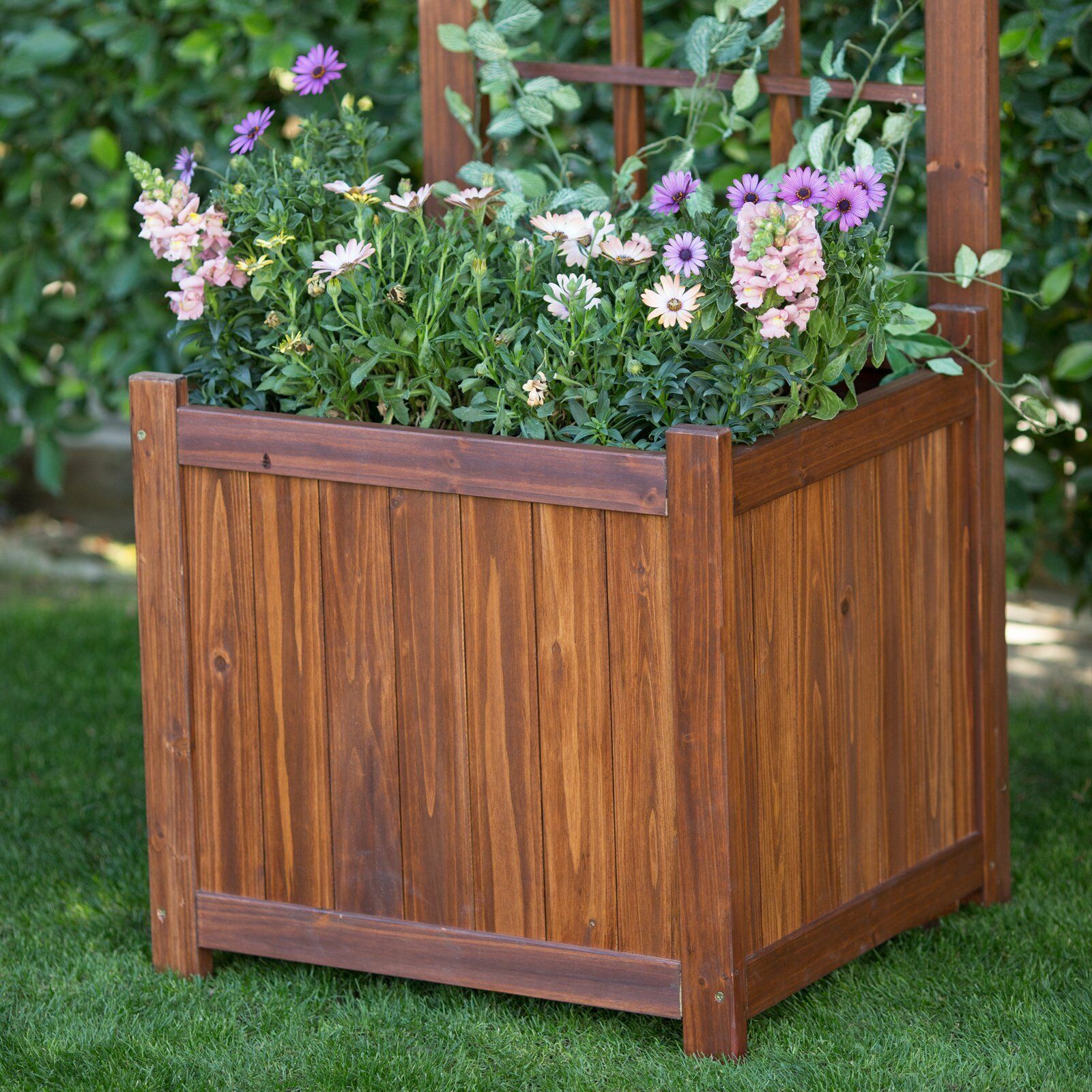Wooden tree planter boxes offer a versatile and stylish solution for growing trees and other plants in various settings. Crafted from durable wood, these boxes provide numerous benefits, including optimal drainage, enhanced soil composition, and customizable aesthetics. Whether you’re a seasoned gardener or a novice enthusiast, this comprehensive guide will equip you with the knowledge and inspiration to create a thriving and visually appealing outdoor space with wooden tree planter boxes.
From selecting the appropriate size and style to understanding proper watering techniques and fertilization schedules, we’ll delve into the practical considerations essential for ensuring the success of your plants. Additionally, we’ll explore the range of wood finishes and decorative elements available to complement different garden styles and landscaping projects.
Design and Features

Wooden tree planter boxes are typically rectangular or square in shape, with dimensions varying depending on the size of the tree to be planted. They can range from small boxes suitable for patio or balcony gardening to large boxes designed for planting full-sized trees in urban environments.
The most common types of wood used for constructing planter boxes are cedar, redwood, and oak. These woods are naturally resistant to rot and decay, making them durable and long-lasting. Cedar and redwood are also lightweight and easy to work with, making them popular choices for DIY projects.
Drainage Systems
Adequate drainage is essential for the health of trees planted in containers. Wooden planter boxes typically have drainage holes drilled into the bottom to allow excess water to escape. Some boxes also have a raised bottom, which helps to improve drainage and prevent the roots from sitting in water.
Practical Considerations: Wooden Tree Planter Box

The selection of the appropriate wooden tree planter box is crucial for the health and growth of the plants it houses. Understanding the specific requirements of different plant species is essential in determining the ideal size and style of the box.
The composition of the soil and its drainage capabilities significantly impact plant growth within wooden tree planter boxes. Ensuring optimal soil conditions is vital for healthy root development and overall plant vigor.
Proper watering techniques and a balanced fertilization schedule are essential for maintaining the health of plants in wooden tree planter boxes. Understanding the specific water and nutrient requirements of different plant species is crucial for their optimal growth and development.
Plant Species Considerations, Wooden tree planter box
When selecting a wooden tree planter box, the size and style should align with the specific plant species intended for planting. Smaller trees and shrubs may thrive in boxes with a capacity of 10-20 gallons, while larger trees may require boxes with a capacity of 50 gallons or more.
The shape of the box should also be considered. Round or square boxes are suitable for most plants, while rectangular boxes may be more appropriate for plants with a spreading root system.
Soil Composition and Drainage
The soil composition within wooden tree planter boxes should mimic the natural growing conditions of the plant species. Well-draining soil is essential to prevent waterlogging, which can lead to root rot and other issues.
A mixture of topsoil, compost, and perlite or vermiculite can provide a well-draining and nutrient-rich growing medium. The pH of the soil should be adjusted to match the specific requirements of the plant species.
Watering and Fertilization
Watering frequency and amount should be tailored to the specific plant species and the prevailing climate conditions. Overwatering can be detrimental, so it is advisable to allow the soil to dry out slightly between waterings.
Fertilization is essential for providing plants with the nutrients they need for healthy growth. A balanced fertilizer should be applied regularly according to the manufacturer’s instructions.
Aesthetic and Decorative Aspects

Wooden tree planter boxes offer a versatile canvas for creative expression and aesthetic enhancement. From classic finishes to vibrant hues, the choice of wood treatments and decorative elements allows for seamless integration into diverse garden styles.
Natural wood finishes, such as oiled or waxed surfaces, showcase the inherent beauty of the wood grain, adding warmth and texture to any outdoor space. Stains, in a range of colors, provide a protective layer while enhancing the wood’s natural characteristics, creating a rustic or sophisticated look.
Paint and Color Choices
Paint opens up a world of possibilities for customizing wooden tree planter boxes. Choose from bold, eye-catching colors to subtle, earthy tones that complement the surrounding plants and garden décor. Consider using stencils or freehand painting to add intricate designs or patterns, creating unique and personalized planters.
